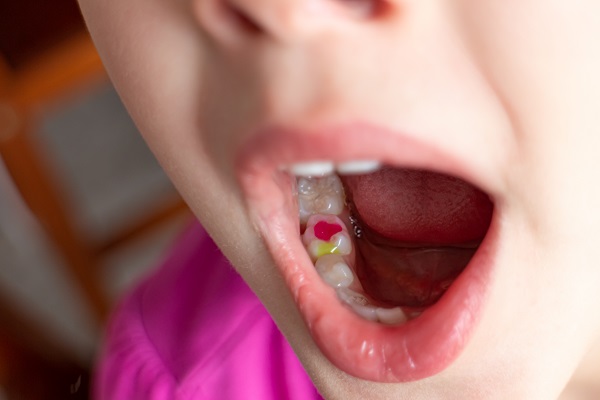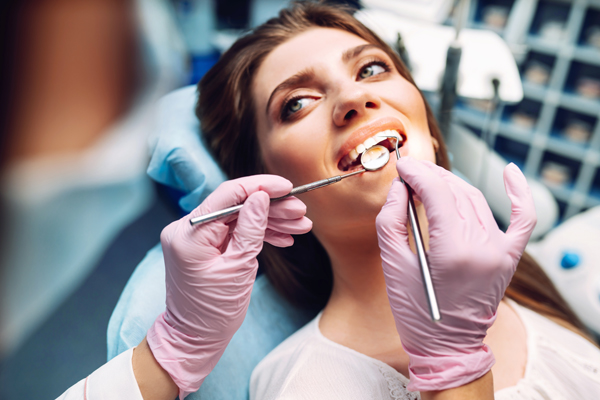A Manalapan Dentist Answers: How Bad Is Soda for Your Teeth?

Do you love drinking soda and wonder what your Manalapan dentist has to say about this habit? For decades, health officials have warned the general public about the dangers of consuming sodas. Dentists have also been warning their patients about the negative impact soda consumption can have on their oral health, but for the most part, the warnings have fallen on deaf ears.
According to the American Dental Association, soda consumption is one of the leading causes of tooth decay, and regular consumption can eventually lead to tooth loss.
How bad is soda for your teeth?
The two main dental side effects that occur as a result of drinking soda are erosion and cavities.
When you drink soda, the sugars in the drink and the bacteria in your mouth combine to form acids which attack your enamel and erode it, weakening your teeth. Over time, these acids continue to wear down your enamel, leading to damage to the surface of the tooth, which become holes known as cavities.
If you do not practice good oral hygiene and the tooth decay spreads, you could eventually lose the tooth, which is why you should see your Manalapan dentist at least twice a year.
Is diet soda a safer alternative?
No. Diet sodas also contain acids that can wear down your enamel and cause tooth decay. Every time you take a sip of soda, the acids attack your teeth for about 20 minutes and start over again when you take another sip, which means your teeth are constantly under attack if you consume a lot of soda.
Protecting your teeth from damage
According to your Manalapan dentist, the best way to protect your teeth from damage is to give up soda — which is easier said than done for most people. If you have a hard time giving up soda, there are a few things you can do to protect your teeth, including:
Drinking in moderation
If giving up soda is difficult, you can try to wean yourself off the sugary drink by consuming it moderately. If you are used to drinking four cans of soda a day, try reducing the number to one a day
Use a straw
Using straws to drink your soda reduces your teeth’s contact with the sugar, limiting the damaging effects
Consume it quickly
Since the acids attack your teeth for 20 minutes after each sip, there is no point in taking your time when you are drinking soda. Try to finish the drink as quickly as possible to reduce the damage the sugar and acid do to your teeth
Wash mouth with water after drinking
Rinsing your mouth with water after drinking soda helps to get rid of the sugars and acids left in your mouth
Conclusion
Drinking soda is bad for your oral health because it can lead to tooth decay and tooth loss. If you still drink soda and want to stop, talk to your Manalapan dentist today to find out what your best options are.
Request an appointment here: https://vsndental.com or call VSN Dental PC at (732) 795-6073 for an appointment in our Manalapan office.
Check out what others are saying about our services on Yelp: Read our Yelp reviews.
Recent Posts
tooth fillings offer a simple approach with little to no pain. This dental restoration treatment has long been the standard for restoring and rebuilding teeth damaged by cavities, injury, or minor imperfections such as chips or cracks. When considering different dental restoration options, it is a good idea to get familiar with how each procedure…
Your smile is often one of the first things that other people notice about you. A smile makeover offers an effective way for you to transform it into the one you can proudly show off. This treatment process provides multiple benefits, from correcting minor cosmetic issues to a complete overhaul. Here are five reasons to…
A general dentist is someone who helps individuals maintain a healthy oral cavity, and that includes performing root canal therapy as needed. Root canals are a procedure that often strikes anxiety in individuals because it was once said to be painful; however, that is actually far from true! Modern-day dentistry has allowed for quite the…
Practicing preventive dentistry is an effective way to establish good oral health. Strict personal oral hygiene practices result in fewer dental problems. Strengthening these practices with regular dental appointments makes preventive dental care even more efficient. Preventive dentistry becomes even more effective by avoiding some bad habits.This habit increases the risk of chipping teeth. It…


